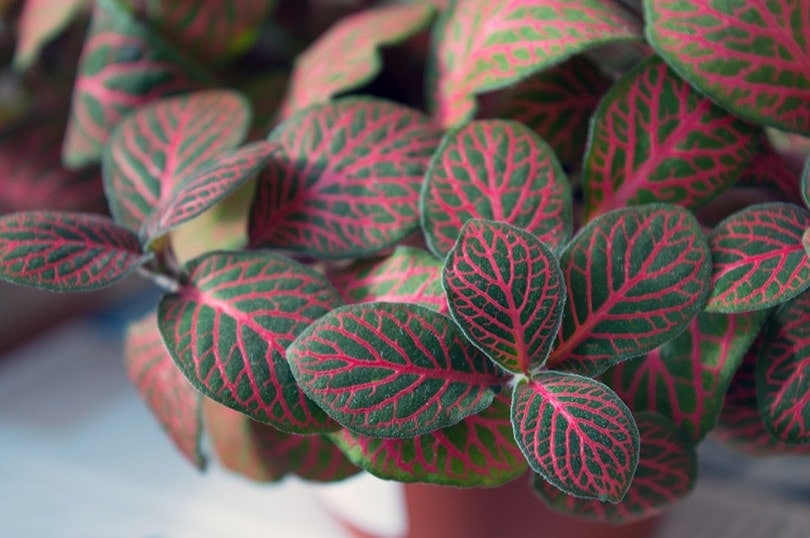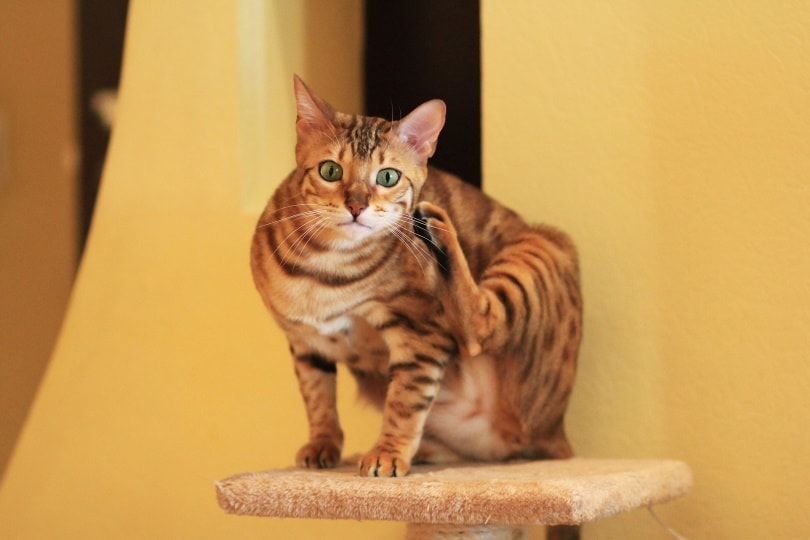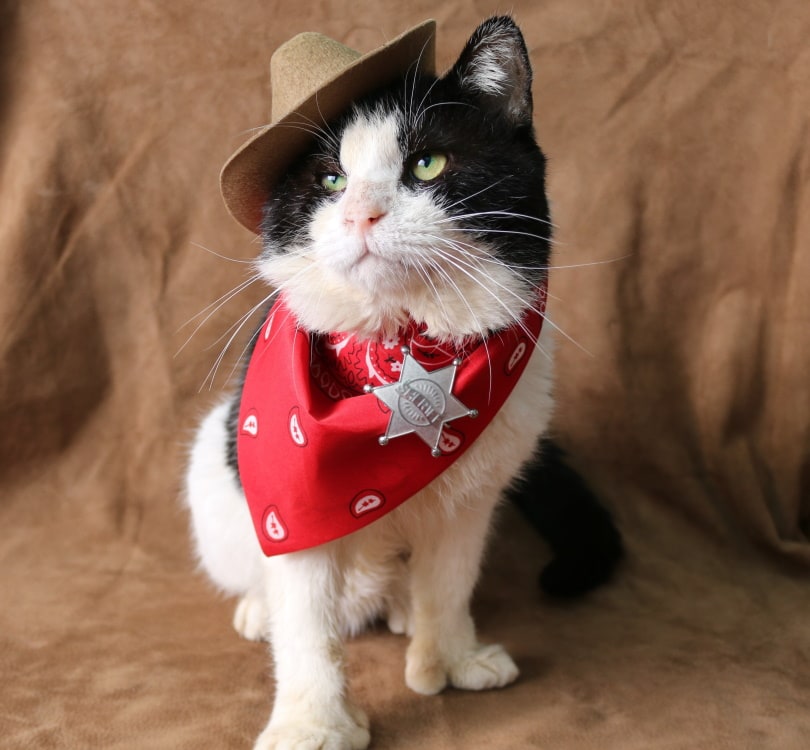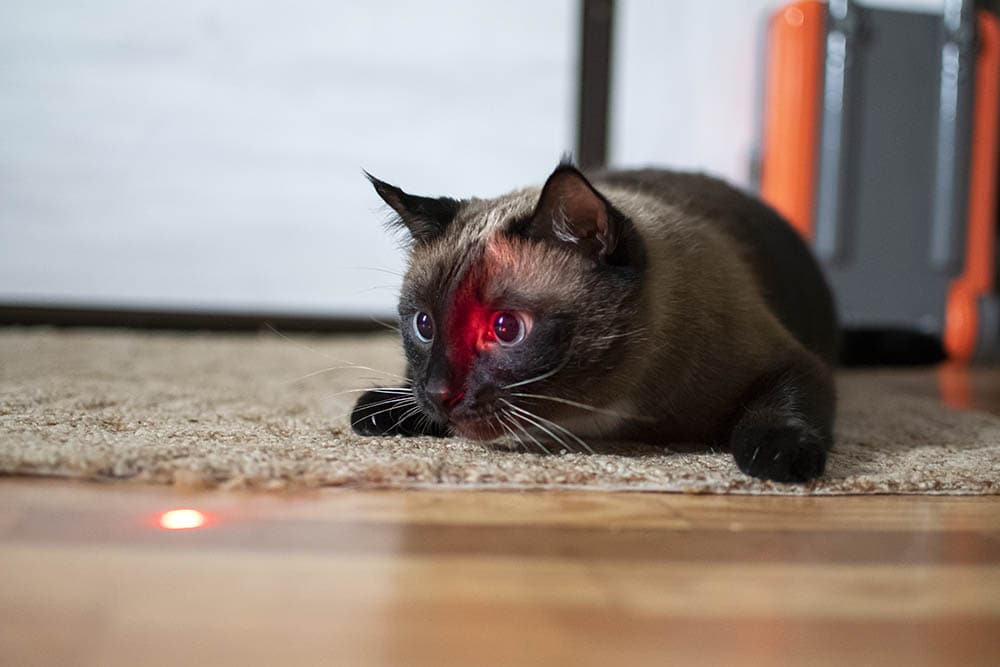Is Fittonia Toxic to Cats? Safety Tips & Plant Recommendations

Updated on

Indoor plants are popular in many households. So are pets, which can create a dilemma—some plants chosen for their looks are toxic to pets, including cats.
Fittonia, a beautiful, leafy plant with striking patterned foliage, is one such plant. These plants are easy to care for and thrive in a variety of conditions, but is fittonia toxic to cats? Fortunately, Fittonia is safe for cats.
About the Fittonia Plant
Also known as a nerve plant or mosaic plant, the Fittonia argyroneura is a plant from the Acanthus family that comes in green and pink, green and white, or green and red. The veining is delicate and a striking contrast, which lends to its popularity as a houseplant.
Named for its 19th-century discoverers, Elizabeth and Sarah May Fitton, the fittonia plant will bloom with reddish or white spikes. Grown indoors, the fittonia rarely flowers. This plant originates in Peru and the tropical rainforest, so it thrives in humid environments with minimal irrigation.
Fittonia is ideal for terrariums, dish gardens, and hanging baskets. In the right climate, it can thrive as ground cover. The foliage is low-growing and trailing.

Is Any Part of Fittonia Poisonous?
All parts of the fittonia plant are safe for humans and cats. Humans often consume the leaves as a remedy for headaches or muscle pain, but if your cat nibbles on a leaf, it won’t harm it.
Cats aren’t built to digest high volumes of plant material, however, so they could get digestive upset if they eat too much. This isn’t a sign of the plant’s toxicity, however, but just a sign of eating too much plant material.
Your cat can cause problems for the plant, though. Cats are curious, and repeated chewing or nibbling can harm the plant. You may want to keep your plant out of reach of your cat, such as on a high shelf or a hanging pot.
If your cat is eating a lot of plant material on a regular basis, there may be an underlying condition like anxiety, nutrient deficiency, parasites, or digestive upset. Be sure to consult with your vet and keep the plants out of reach until you determine the cause.
Plants That Are Toxic to Cats
Fittonia may be safe but plenty of common houseplants or garden plants are toxic to cats.

- Adam and Eve
- Alocasia
- Aloe
- Amaryllis
- American Bittersweet
- American Holly
- American Mandrake
- American Yew
- Andromeda Japonica
- Arrowhead Vine
- Arum Lily
- Asian Lily
- Asparagus Fern
- Autumn Crocus
- Azalea
- Barbados Aloe
- Barbados Lily
- Bay Laurel
- Bead Tree
- Begonia
- Bergamot Orange
- Bird of Paradise
- Bishop’s Weed
- Bitter Root
- Black Cherry
- Black Laurel
- Black Nightshade
- Bobbins
- Branching Ivy
- Castor Bean
- Chrysanthemum
- Cyclamen
- Daffodil
- Dieffenbachia
- English Ivy
- Hyacinth
- Kalanchoe
- Lily
- Oleander
- Peace Lily
- Tulip
- Yew
Key Takeaways
Finding a plant that’s both safe for your cat and suitable for your home can be challenging. The fittonia is a beautiful plant with striking patterns that’s easy to care for and completely safe for your cat.
Related Reads:
- Are Dracaena Toxic to Cats? Keeping Your Cat Safe
- Are Croton Plants Toxic to Cats? Keeping Your Cat Safe
Featured Image Credit: AKuptsova,, Pixabay












